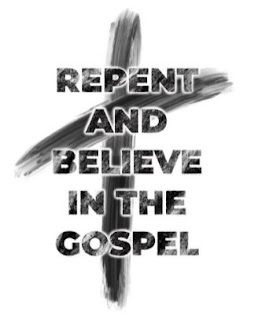Thirteenth
Sunday in Ordinary Time
1 KGS 19:16B, 19-21
PS 16:1-2, 5, 7-11
GAL 5:1,13-18
LK 9:51-62
The readings for this Sunday speak to our to discipleship in
this not-so ordinary time. Following Christ requires a complete commitment of
one’s entire person to love our neighbor as ourself.
In the Gospel, Jesus entered a Samaritan town with His Apostles.
Remember that the Jews and Samaritans were bitter enemies. They hated one
another over differing theological viewpoints. When the Samaritan townspeople
refuse hospitality to Jesus, James and John are furious! They ask for
permission to make like Elijah and call down fire from heaven to burn up
those ‘dirty sinners.’ I can only imagine the look on Jesus face as he
slowly turns to them, shakes his head, and silently rebukes them in disgust.
Have they not learned anything from Him?
My friends, we must be careful to not be like James and John that
day. On Friday, the Solemnity of the Most Sacred Heart of Jesus, a grave
injustice in our nation was undone. After 50 years, Roe v Wade has finally been
struck down. We should rejoice in this victory for the Culture of Life and give
thanks to Almighty God. But today is not a day to call down fire upon those who
reject life – to gloat, to taunt them, to condemn them. Today is the day to
begin our work anew and to redouble our efforts to win their hearts and souls
for Jesus Christ. The Supreme Court did not end abortion in this country.
It merely shifted the matter back to the individual states. If we truly want to
change the culture and end abortion, we need to change hearts and change minds…and
we may have to start with our own.
We who proclaim Jesus Christ as our Lord and Savior have work to
do. We must be ready and willing to redouble the assistance we already provide
for expectant mothers and unborn children. In days to come, women will approach
the Church – they will approach you and me – asking what we can do for them.
Many will be scared because they have been taught to believe that
abortion is the only option. Some will be angry because they wrongly believe
that option has been unjustly taken away from them. We are to respond as Jesus
Christ did – with love and compassion. We need to educate ourselves on what
help is available for these women and be ready and willing to provide that
help.
The Catholic Church has numerous apostolates in our diocese and
collaborates with multiple agencies to provide pre-natal and post-natal care
and support to mothers, fathers, and babies in need. Dozens of these are listed
on the diocesan website. I will make sure these Pro Life resources are listed
on our website as well. Locally, we now have The Gabriel Project, which
provides to mothers in crisis spiritual and emotional support via a
volunteer ‘angel’ that accompanies her through pregnancy and for 12 months
after the child is born. The angel volunteer helps mothers and fathers find
the resources and use the services they need to provide for the baby. I am
asking for volunteers in our parish to become Gabriel Angels to these mothers
in need. Please prayerfully consider if you feel called to share your gifts
with these children of God.
Holy Mother Church is here to provide healing and reconciliation
for those who have had an abortion or have helped someone procure an abortion,
as well. Like her Divine Bridegroom, Jesus Christ, she never abandons her
children. There may be some sitting in this church right now who are suffering
from the physical, mental, spiritual, and emotional trauma of a past abortion.
I want you to know - Jesus Christ loves you, the Church loves you, and I
love you. If someone here today is in need of healing after an abortion or
helping someone to have an abortion, please come see me. You will not be judged
or condemned. Jesus Christ is waiting for you in the Sacrament of Confession to
hold you close to His Sacred Heart to forgive you and heal all your wounds. Rachel
Ministries is ready to help women and men who regret their abortion and are
tired of living in silence and pain. They offer retreats, peer support, and
professional/pastoral counseling to aid your recovery. Come see me please for
more information.
Some of us who are fiercely pro-life may feel conflicted when
called upon to forgive, embrace, and assist people who have considered or
have had an abortion. Christ responds to this internal struggle in today’s
Gospel reading as he encounters two ‘would be’ disciples on His way to
Jerusalem. “Follow me,” Jesus says. But the first replied, “Lord let me go
first and bury my father.” The other said, “I will follow you, Lord, but first
let me say farewell to my family at home.” These two want to follow Christ but
only on their own terms. To this, Christ says ‘close, but no banana!’
Following Him requires an unqualified “yes” not a “yes but…” We are
called to put Christ and His kingdom ahead of our own preconceptions if we
truly wish to be his disciples and to find victory in the battle of
selfishness.
Do not be afraid to give the very best of yourself and your
gifts to Christ. He deserves nothing less. Continue praying, fasting, and doing
works of charity. The building of the Culture of Life in our country, while
challenging, will be characterized by a joy and peace that only comes from
giving Him an unqualified “yes!” Immaculate
Heart of Mary, Pray for Us!









